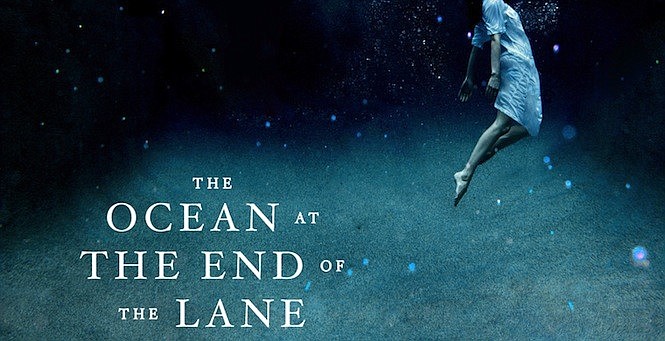- October 19, 2022
-
-
Loading

Loading

Let me get this out of the way: I loved this book. Neil Gaiman has a rabid following, particularly among comic book and fantasy fans, primarily because of his truly brilliant comic book series, “The Sandman,” a story packed with myth, fairytale and literary reference so rich you never want it to end. OK, yes, I’m a fan. But, here’s the thing: “The Ocean at the End of the Lane” really did something to me. I mean, it got lodged in my chest and I can’t shake it.
My copy of this slim book arrived just when I was engaged in some harried day-to-day planning — a fall writing schedule, part-time bookstore schedule, kitchen to tile, yard to mow — and its story jarred me out of my routine, into the electricity (sometimes scary, sometimes shimmery) of just being a person.
“The Ocean at the End of the Lane” is the story of an unnamed narrator who returns to his childhood home in Sussex, England, for a funeral. While there he wanders to a familiar pond behind the farm at the end of the lane of his childhood home. Reminiscing there, the man is thrust back into a forgotten memory, and so is the reader.
When our narrator is 7, an opal miner/family tenant kills himself. Like a spark from a fire, a dark force flies into the world, eventually taking the form of an icy nanny who tries to keep the boy locked up while she seduces his father. With the help of three strangely comforting women, the Hempstocks, who live on the farm at the end of the lane, the boy confronts the forces that threaten his world.
In particular, the boy’s friendship with the youngest Hempstock, a 10-year-old named Lettie, is one of the novel’s touchstones. Lettie is both instigator and ultimate protector, a sort of guiding Virgil to Dante’s wanderer. And Lettie’s pond, which she calls an ocean, provides the story’s emotional climax. In the pond’s waters, the boy observes, “I saw the world from above and below. I saw that there were patterns and gates and paths beyond the real. I saw all these things and understood them and they filled me … ” A beautiful scene.
The English Romantic poet John Keats once wrote in a letter that he believed in man’s capability “of being in uncertainties, mysteries, doubts, without any irritable reaching after fact and reason.” “The Ocean at the End of the Lane” reminded me that sometimes it’s OK to bask in the questions and leave the answers for another day.
“The Ocean at the End of the Lane” is available at Bookstore1, 1359 Main St., Sarasota. Call 365-7900.